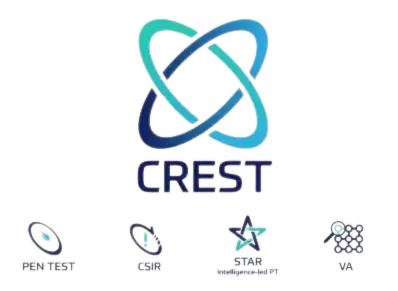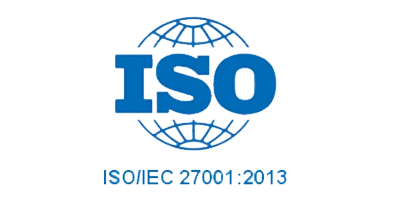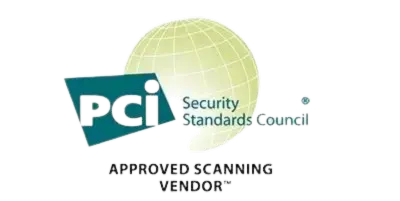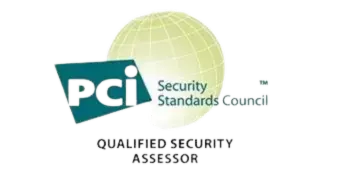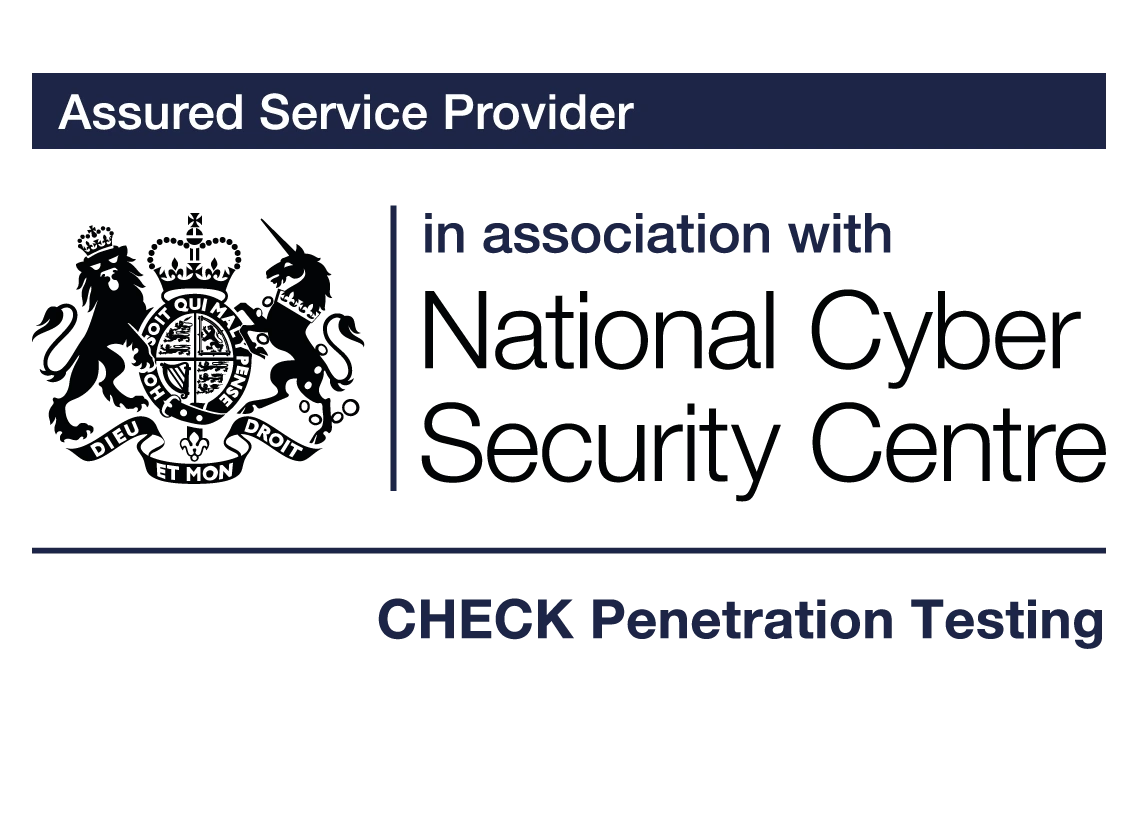ISO 27001 Compliance: An Overview
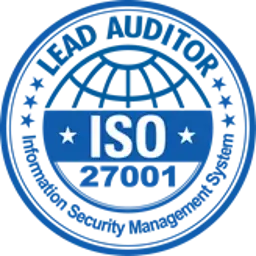
ProCheckup boasts a team of certified ISO 27001 Lead Auditors and Lead Implementer's, guaranteeing that organizations meet the rigorous requirements of the ISO 27001 standard. Our extensive expertise offers a robust validation of your compliance posture, ensuring that your information security management system aligns with international best practices.
What is ISO 27001?
ISO 27001 is the international standard outlining best practices for an information security management system (ISMS). In the digital age, ensuring the security, integrity, and confidentiality of corporate information is paramount. ISO 27001 certification demonstrates an organization's commitment to this end.
At its core, ISO 27001 aims to establish, implement, and continually improve an ISMS within the context of an organization's overall business risks. This robust framework is designed to safeguard sensitive information from security threats, ensuring business continuity and adding a layer of trust for stakeholders.

Key Components of ISO 27001
- Scope of the ISMS: Clearly defining what will be covered by the ISMS, be it an entire organization or a specific department or process.
- Information Security Policy: A high-level document, approved by management, which outlines the approach to managing information security.
- Risk Assessment and Treatment: Identify threats and vulnerabilities related to the information assets, evaluate their potential impact, and decide on appropriate measures to handle those risks.
- Statement of Applicability (SoA): A crucial document that lists all of the ISO 27001 controls, stating which are applicable and how they are implemented or justified.

The Value of ISO 27001 Certification for Your Business
Achieving ISO 27001 certification isn't just about meeting a global standard – it's about the myriad benefits that come with it:
1. Enhanced Reputation
Companies with ISO 27001 certification signal to clients, stakeholders, and partners that they prioritize information security, which can foster trust and differentiate them in the marketplace.

2. Competitive Advantage
In an increasingly digitized world, information security can be a deal-breaker. Businesses certified in ISO 27001 can have an edge in tenders and procurement processes, especially with clients who emphasize cybersecurity.
3. Legal & Regulatory Compliance
With a myriad of regional and international regulations focusing on data protection, having ISO 27001 in place can simplify compliance processes, ensuring you're always one step ahead.

4. Reduced Risks
By adhering to ISO 27001's comprehensive approach, organizations can identify, manage, and reduce risks related to information security, minimizing potential damage and associated costs.
5. Employee Awareness & Engagement
ISO 27001 isn't just a managerial endeavor. The processes and training involved raise awareness among staff, making them active participants in maintaining the organization's security posture.

ISO 27001 Certification Process
Achieving ISO 27001 certification is a rigorous process, which ensures that organizations truly uphold the standard's principles. Here's a brief overview:
- Gap Analysis: Determine where the organization currently stands with respect to ISO 27001 requirements.
- ISMS Implementation: Design and implement an ISMS in line with the standard's requirements.
- Internal Audit: Conduct a thorough audit to identify any areas of non-compliance or potential improvement
Maintaining ISO 27001 Compliance
Achieving ISO 27001 certification is a significant milestone, but the journey doesn't end there. It requires an ongoing commitment to information security.
- Regular Audits: Organizations need to carry out internal audits periodically to ensure continuous adherence to the ISMS.
- Continuous Improvement: Based on audit findings and changing business needs, the ISMS should evolve and adapt over time.
- Annual Review: At least once a year, an external body should review the ISMS to verify its effectiveness and relevance.
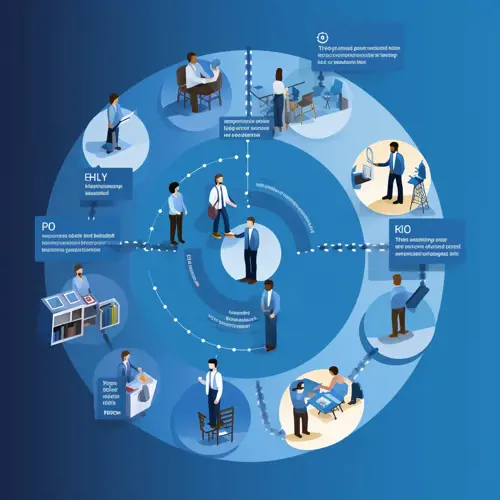
The Relationship Between ISO 27001 and Other Standards
While ISO 27001 is the go-to for information security management, it's important to understand its place among other ISO standards and how they complement each other.
- ISO 27002: Code of Practice for Information Security Controls
ISO 27002 provides detailed guidance on individual controls within an ISMS. Organizations looking to flesh out their ISMS or refine specific controls often refer to ISO 27002. - ISO 22301: Business Continuity Management
This standard focuses on business continuity planning and disaster recovery. While ISO 27001 includes controls related to these topics, ISO 22301 dives deeper, ensuring that businesses can operate and recover from unexpected disruptions. - ISO 27701: Privacy Information Management
As concerns over privacy grow, ISO 27701 becomes increasingly relevant. It outlines how to build a privacy information management system, complementing the data security focus of ISO 27001.
![]()
ISO 27001 and Modern Technologies
In the rapidly evolving digital era, integrating ISO 27001 principles with new technologies is critical. Here's how ISO 27001 aligns with current technological trends:
1. Cloud Computing
Organizations are increasingly transitioning to the cloud for storage and services. ISO 27001 ensures that cloud service providers maintain the highest security standards, ensuring data integrity and confidentiality.

2. Internet of Things (IoT)
As IoT devices proliferate, there's an increased need to safeguard the data they collect and transfer. ISO 27001 provides guidelines for securely managing this data and ensuring device-to-device secure communications.
3. Machine Learning & AI
These technologies process vast amounts of data, which must be protected. ISO 27001 offers a roadmap for organizations to secure the datasets used and outputs generated by AI models.

Frequently Asked Questions (FAQs)
Q: How long does the ISO 27001 certification process take?
A: The timeline can vary based on an organization's size, complexity, and existing infrastructure. Typically, it ranges from 6 months to over a year.
Q: Do we need to recertify regularly?
A: Yes, to maintain your ISO 27001 certification, organizations need a surveillance audit every year and a recertification audit every three years.
Q: Can small businesses also benefit from ISO 27001?
A: Absolutely! ISO 27001 is suitable for organizations of all sizes. Small businesses can gain a competitive edge and build trust with stakeholders by becoming certified.

Key Takeaways and Recommendations
- Start Early: The journey towards ISO 27001 certification can be time-consuming, but the earlier you start, the smoother the process will be.
- Internal Audits are Essential: Regularly evaluate your ISMS's efficiency. Not only does this prepare you for the formal certification audit, but it also ensures you're always at the pinnacle of information security.
- Engage All Departments: Information security isn't restricted to the IT department. Engage all stakeholders, from marketing to HR, to ensure a comprehensive approach.
- Stay Updated: The digital realm is ever-evolving, with new threats emerging regularly. Stay abreast of these changes and adapt your ISMS accordingly.

Testimonials from Certified Companies
"Achieving ISO 27001 certification with ProCheckUp's guidance was a game-changer for our brand. We've seen increased trust from our clients and partners."
"The team at ProCheckUp walked us through every step, demystifying the process. Today, our employees are more security-aware than ever!"

Join Us for Our Upcoming ISO 27001 Workshop
We regularly conduct workshops and webinars on ISO 27001, its benefits, and the roadmap to certification. These sessions are ideal for businesses looking to start or enhance their ISMS journey.

Interested in pursuing ISO 27001 certification or have further questions? We provide comprehensive consultation, training, and support throughout the certification journey.
For More Information Please Contact Us

ACCREDITATIONS
